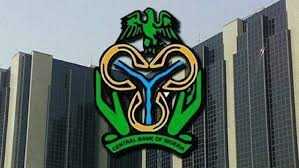The Central Bank of Nigeria has issued new draft guidelines requiring banks to provide automatic, instant refunds for failed ATM transactions. Released on October 9, 2025, the proposed rules aim to strengthen consumer protection, restore trust in electronic banking, and enhance accountability across financial institutions. Stakeholders have until October 31 to submit feedback before the policy is finalised.
Under the new framework, any failed “on-us” transaction—where customers use their own bank’s ATM—must be reversed immediately. If an instant reversal is not possible due to system issues, banks will have a maximum of 24 hours to rectify the error manually. For “not-on-us” transactions carried out on other banks’ ATMs, refunds must be completed within 48 hours.
ATM acquirers are mandated to install systems that automatically trigger refunds without waiting for customer complaints. They must also reconcile and return any trapped or partially dispensed funds in their possession.
The CBN noted that these measures are critical to reducing the persistent frustration customers face when funds remain unreturned after failed withdrawals, reinforcing confidence in digital banking services.
This refund policy forms part of a broader reform of ATM deployment and operations, replacing previous provisions in the 2020 electronic payments guidelines. According to the apex bank, the overhaul responds to rapid technological shifts, growing cyber risks, and the need to deepen financial inclusion.
A key provision requires banks and card issuers to deploy one ATM for every 5,000 cards issued. Implementation will be phased—30 percent compliance in 2026, 60 percent in 2027, and full compliance by 2028. Any installation, relocation, or removal of ATMs will now require CBN approval.
Higher operational standards are also outlined. All ATMs must comply with Payment Card Industry Data Security Standards, maintain audit logs for dispute resolution, and carry clear card orientation symbols. At least 2 percent of machines deployed must include tactile features to support visually impaired users.
Security and accessibility requirements include siting machines in secure, well-lit areas, installing anti-skimming devices, and equipping them with surveillance cameras that do not capture PIN entries. For customer convenience, ATMs must dispense cash before releasing cards to avoid abandoned funds, provide receipts on request, allow free PIN changes, and ensure only fit banknotes are issued. Backup power, active helpdesk lines, and sufficient on-screen transaction time are also compulsory.
The CBN said compliance will be enforced through periodic audits, physical inspections, and mandatory monthly deployment reports from ATM operators. Although penalties were not detailed, institutions that fail to meet these standards will face sanctions.
By enforcing strict refund timelines and tightening operational protocols, the apex bank aims to improve service reliability, cut down on customer complaints, and align Nigeria’s payment systems with global best practices.
This directive follows the CBN’s earlier revision of ATM usage fees, which ended the long-standing provision of three free withdrawals on other banks’ ATMs, signalling a broader restructuring of cash access and electronic payment policies nationwide.










